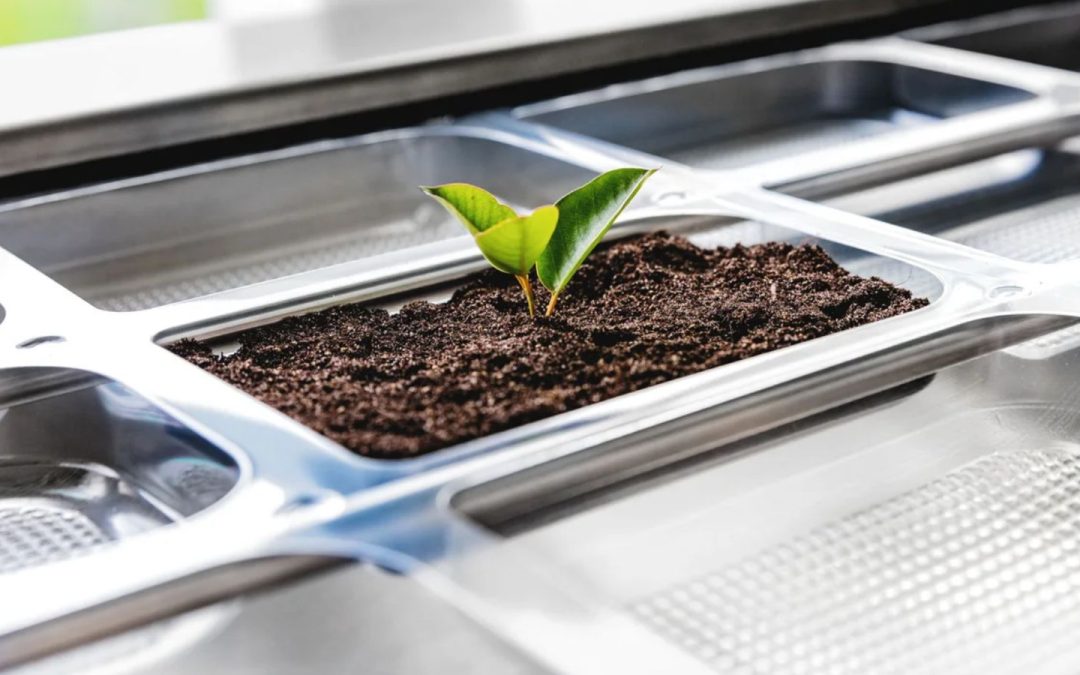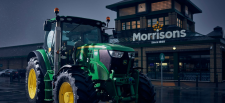SPONSORED CONTENT:

While inflation has continued to be a hot topic in recent months, particularly in the food and drink industry, there still remains debate over whether consumer focus on sustainability has waned.
When it comes to reducing plastics, supermarkets face a dilemma: Consumers clearly want proactive sustainability efforts, but they often hesitate to buy products that don’t look perfect when shopping, such as mis-shaped peppers or browning meat. So, how can manufacturers be sustainable and keep consumers happy?
Meeting demand for more sustainable products
MULTIVAC have faced this issue head on for a while and have previously outlined the difficulties faced by FMCG food and drink brands in reducing plastics. In 2023, Materials Business Unit Manager, Elliot Chrisp, suggested that there wasn’t a materials solution that could reduce plastic while maintaining the current pack look and feel.
Since then, MULTIVAC’s team of experts have gone on to assist a major meat supplier to implement this change, where they supported major UK food retailer, Sainsbury’s, in their change to using Flex/Flex Vacuum Packaging for their minced meat products. This project successfully removed 8,000 tonnes of CO2 from their operations, which highlighted the potential benefits of the Flex/Flex Vacuum packaging.
Moving beyond mince packs, Flex/Flex packaging can also be applied to a range of applications, such as sliced cooked meats, raw proteins and bacon.
So, what are the advantages of using Flex/Flex packaging?
- Up to 75% less plastic can be used
- Much more cost effective with a cheaper pack, and much more efficient as it’s quicker to produce in food production factories
- Increased packs per pallet, reducing transport emissions and costs by up to 60%
- Smaller more compact packs, providing more fridge and freezer space for shoppers
- No change in product quality e.g. slices of meat are still easy enough to separate straight from the pack
- Better sealing integratory, reducing leak rate in comparison to mono tray solutions that are currently used
There are also a number of meal box subscription companies in the market that already use this packaging format for items like minced meat, diced chicken and fish, with few consumer concerns as there is no need for it to be attractively presented on a supermarket shelf.
Chrisp added: “This is a very old format of packaging from a materials perspective! Vacuum packaging was first created in an attempt to increase the shelf-life of proteins, and it’s a proven success. However, the real victory here would be managing to persuade more major UK retailers to drop the fear of consumer perception and take advantage of the massive sustainability gains available.”

The reality
Changing consumer perception is crucial for the success of this packaging format in supermarkets. Currently, Flex/Flex packaging can be recycled by returning it to supermarkets, and it has reduced Sainsbury’s annual plastic usage by 450 tonnes.
In the ongoing battle against plastic waste, Chrisp says it’s crucial to distinguish genuine sustainability efforts from mere greenwashing. Switching to Flex/Flex packaging can lead to a remarkable 75% reduction in plastics, which also translates to a substantial 1,305 tonne decrease of CO2 in plastic reduction.
And the benefits extend beyond just the plastic reduction, the lightweight and space-saving nature of this packaging significantly improves the logistics chain too. By optimising transport efficiency, the savings in emissions can be increased by upwards of 400%.
When it comes to sustainability, Chrisp emphasises the need for making bold moves in the packaging industry: “In reality, this isn’t about a new packaging format, it’s that a major UK retailer has approached us and said: ‘This is sustainable, cheaper and, it’s the right choice.’ – That’s a great message!“
Driving success and innovation
In the food industry, consumer habits and production demands are constantly changing, and manufacturers are under pressure to keep up, so collaborating with the right expertise can be crucial for success. MULTIVAC UK combine their technical, materials and technical knowledge with practical experience when partnering with their customers, which helps them excel when tackling industry challenges.
MULTIVAC UK also invite customers to visit their Innovation Centre, where they can take advantage of the complete processing and packaging consulting service that they offer, and work with experienced engineers, materials experts, and food technologists to develop customised solutions that are perfectly tailored to their needs.
Learn more about MULTIVAC UK’s Local Innovation Centre here.
To learn more about how MULTIVAC UK can help your business with more innovative and sustainable solutions, get in touch with Elliot Chrisp:
- 07714 703536









